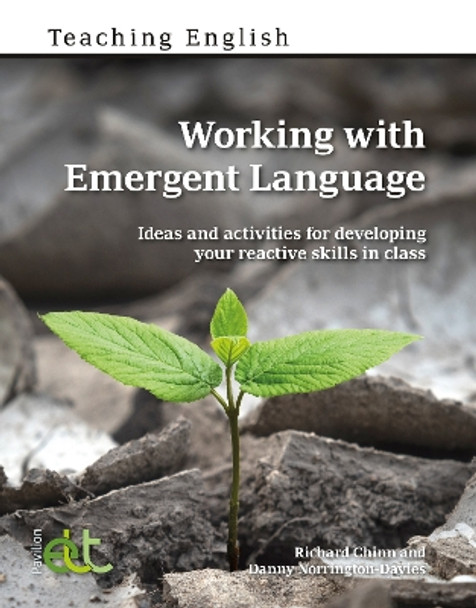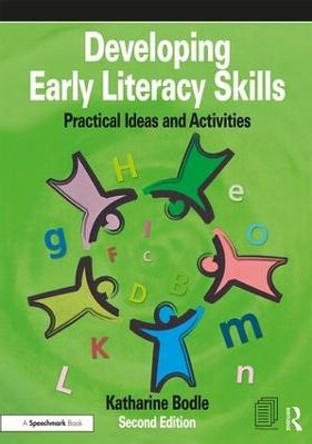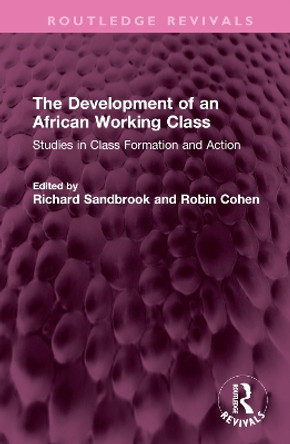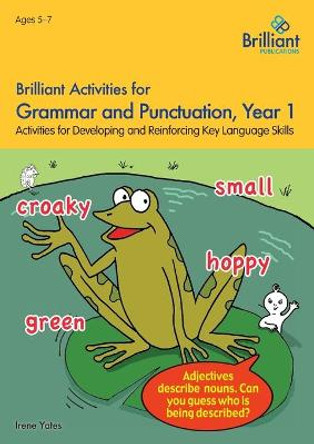Emerging language (EL) is any unplanned language item that arises naturally during lessons that the teacher then chooses to focus on for clarification or modification, and this pedagogy is gaining traction year on year. It originally stemmed from Dogme, a popular movement that basically suggested not using coursebooks or set texts in class at all and working with what the students and the teacher themselves provide. Emergent language takes on board lessons learnt from using Dogme and current teaching practices. However, working with EL is considered a very difficult skill to master, especially for newer teachers or trainee teachers. Therefore, it is not often included on training courses or discussed at length in training manuals for teachers. Working with Emergent Language seeks to close this gap by making teachers more aware of what EL is and how they can learn to work with it more effectively and confidently. This book starts by drawing on the literature and the authors' own experiences to make the case that working with EL is essential for language acquisition to occur and therefore a skill that language teachers should possess. The case is backed up by research and data from observations to explore how experienced teachers work with EL at different stages of a lesson and why they do so. To show how teachers work with EL, you will be introduced to a new framework of teacher intervention types. This draws on previous frameworks plus the authors' own terms created following their extensive research. Transcripts and classroom commentaries from genuine lessons show how these interventions are used by teachers and why. Part two of Working with Emergent Language provides awareness-raising, practice, and reflective tasks to help new and experienced teachers develop their skills with EL. Teacher trainers and educators can also use these tasks during courses, workshops, and observations programmes in schools. Through these tasks, new teachers will be able to work with EL earlier in their careers. Teacher educators can also more confidently introduce EL on their courses. Through the tasks and discussion in this section, you will learn why reflective practice is central to teacher education and development, and through the use of tasks explained in the book, teachers can also take control of their development much earlier in their careers. The final part of the book addresses typical questions and issues about working with emergent language that teachers often ask. They dispel common conceptions suggesting that working with EL is difficult or inappropriate in some contexts and situations.
About the AuthorRichard Chinn is an experienced teacher and teacher trainer based at International House London and a Teaching Associate on the MA TESOL and MA Applied Linguistics and ELT courses at King's College London. He has taught English and worked with teachers in several contexts around the world in Asia, Central and South America, Europe, and Africa. He is an experienced tutor on CELTA and Delta courses and has also worked on PGCE courses. Richard holds an MA in ELT and Applied Linguistics from King's College London with his dissertation focussing on Emergent Language and teacher development (distinction). He is an experienced conference speaker and workshop leader, and his professional interests are in language teaching methodology, classroom interaction, reflective practice, and language teacher development. Danny Norrington-Davies has 25 years' experience as an English language teacher and 15 years' as a teacher trainer. His qualifications include the Cambridge Cert TEFL (1995), Cambridge DELTA (1999) and an MA in English Language Teaching and Applied Linguistics (2013), for which he received a distinction. He is also an experienced conference speaker and have written articles on aspects of teaching and teacher training for ETP, Folio (the magazine of MATSDA, the Materials Development Association), HLT magazine and the Teacher Trainer. Danny's first book, Teaching Grammar: From Rules to Reasons was published by Pavilion in 2016 which quickly became a best seller, and was shortlisted as a British Council ELTon Innovations in Teacher Resources Award in 2018. He now works on CELTA and DELTA courses as well as running training courses in UK and overseas.
Book InformationISBN 9781803881287
Author Richard ChinnFormat Paperback
Page Count 248
Imprint Pavilion Publishing and Media LtdPublisher Pavilion Publishing and Media Ltd








